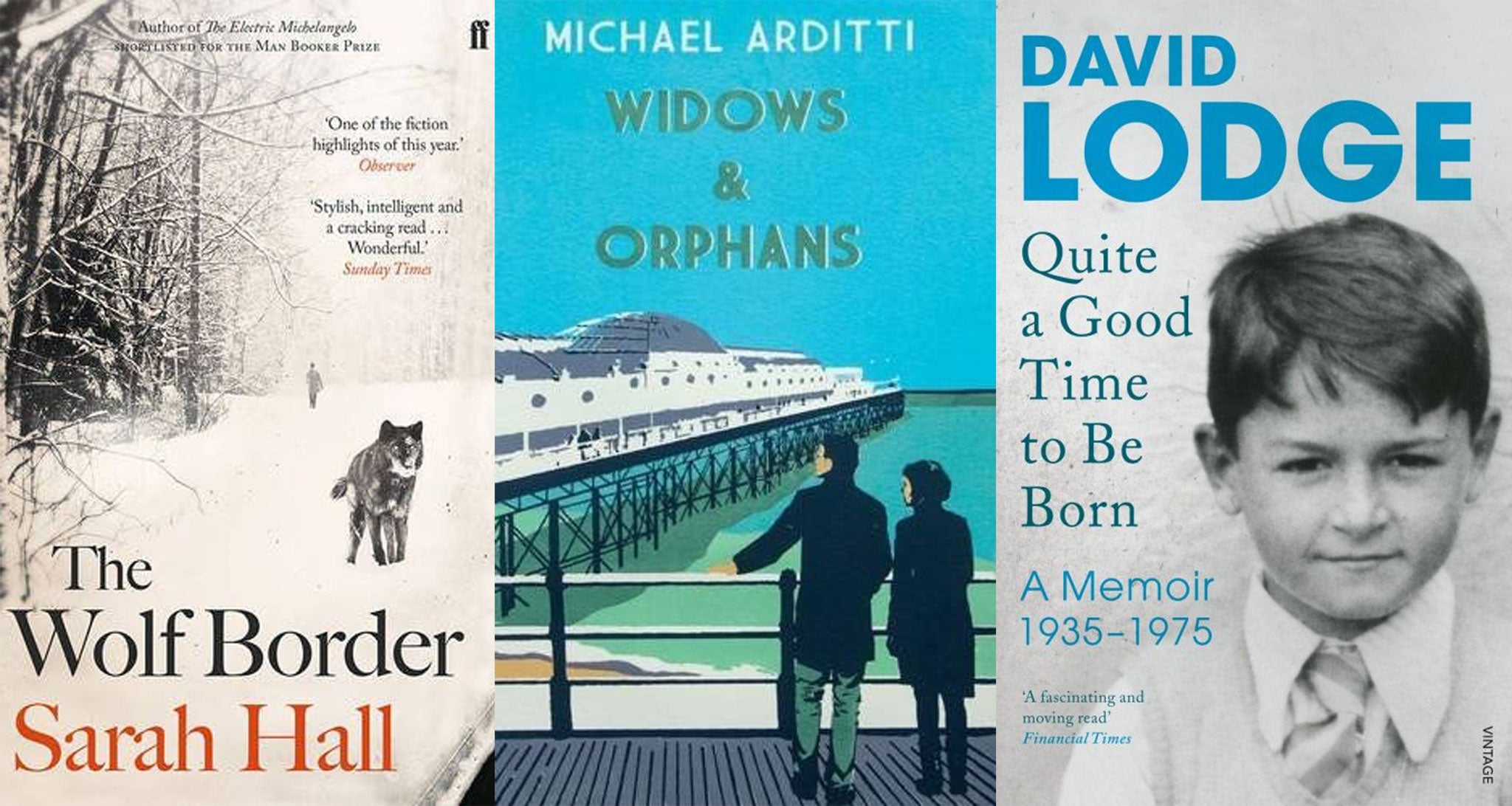The Wolf Border by Sarah Hall; Widows and Orphans by Michael Arditti; Quite a Good Time to Be Born by David Lodge, paperback reviews
A spiritual connection with the wilderness, 21st-century dilemmas, and an evocative memoir

The Wolf Border by Sarah Hall (Faber, £8.99)
Rachel Caine, a young woman from the North of England, has been working on an American-Indian reservation in Idaho studying the behaviour of wolves. As one of the few experts in the field she's summoned back to England by a wealthy landowner to help re-introduce wolves on his estate in the Lake District. As ever Hall's fiction is steeped in the landscape of her native Cumbria "a dark old republic…where the street lights end and the wilderness begins". Borders of both the political and familial kind drive the novel's eccentric plot, but it's the author's spiritual connection with the wilderness that really sets the heart racing. Emma Hagestadt
Widows and Orphans by Michael Arditti (Arrow, £8.99)
The playful title of Arditti's latest novel is typesetting slang for words, or parts of words, left hanging at the ends of lines. Set on the local newspaper of a depressed seaside town, most of the book's characters know how it feels to be teetering on the edge. Yet Francombe's wonderfully prickly population – from doting secretaries to disaffected sons –aren't quite ready to kick the bucket. While the editor works to keep the paper afloat, his old rival plans to re-brand the town's heritage landmark as "Britain's first X-rated pier." A masterly portrait of small-town life and 21st-century dilemmas. EH
Quite a Good Time to Be Born by David Lodge (Vintage, £9.99)
"Interesting experience is money in the bank to a novelist, and you can't open an account too early in life," writes Lodge at the start of this evocative memoir of the years 1935 to 1975. The trauma of his wartime childhood is palpable, and you can see why his Catholic faith and time in National Service later became themes for his fiction. For a celebrated humorist his record of youth is often surprisingly dry, but the exhaustive details of the revolutions in criticism, the novel and Eng Lit are illuminating for anybody concerned with these subjects and the influential role Lodge has played in their development. Marcus Field
Join our commenting forum
Join thought-provoking conversations, follow other Independent readers and see their replies
Comments